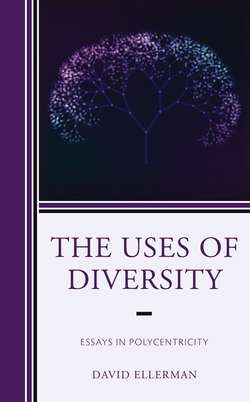Читать книгу The Uses of Diversity - David Ellerman - Страница 8
На сайте Литреса книга снята с продажи.
ОглавлениеPreface
This book is a collection of chapters, some unpublished and some revised versions of published articles, that focus on a common theme. But that common theme is best seen as a “cluster concept” involving such ideas as the following:
• diversity,
• the logic of commitment in organizations,
• parallel experimentation,
• contestation,
• indirect methods of autonomy-respecting help,
• the “how” of social learning in development assistance,
• localism,
• pragmatism and piecemeal social change,
• democratic decision-making.
Stated negatively, the chapters argue against the following:
• monocentric modes of organization,
• experimentation that assumes one knows where the “Truth” lies,
• views based on authoritative and bureaucratic diktat or social conformity to “correct” views instead of views born out of contestation and debate,
• modes of “help” the override or undercut autonomy,
• “globalization” as a euphemism for hegemonic or imperialistic investment and control in developing or transition economies,
• organizations based on the logic of exit,
• big bangery, shock therapy, or engineered social change,
• autocratic-technocratic decision-making based on the logically fallacious methodologies of cost-benefit analysis and the social wealth maximization school of juridical thought.
Many of the chapters were written during my tenure at the World Bank as the senior adviser and speechwriter for Joseph Stiglitz as the chief economist (1997–1999). The World Bank could be seen as a model of the authoritative uncontested establishing of “The World Bank View” on topics of economic and social development. The World Bank, IMF, and the US Agency for International Development (USAID) also supported shock therapy and social engineered types of institutional change in the post-socialist economies much to the detriment of the latter. Given the structural impediments to basic change, I had to conclude that the World Bank should be wound up and shut down under a policy of “decentralization with extreme prejudice” (see Ellerman 2005).
I have also benefited over the years from a series of conferences and workshops organized by Lenore Thomas Ealy, who, together with George Mason University professor Paul Dragos Aligica, is the editor of this series on polycentricity. Those conferences also collected together people from many disciplines. I have tried to maintain that multidisciplinary approach in the chapters by emphasizing how essentially the same concepts can be developed in what at first seem to be disparate areas of study. This concordance and coherence between disciplines increases the power and importance of the common ideas. All the chapters are written in a nontechnical humanistic style, although the chapter on cost-benefit analysis includes some numerical examples.
